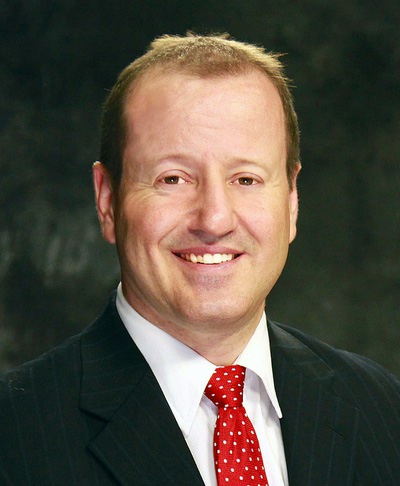Tuesday, Sept. 13, 2016 | 2 a.m.
When Don Burnette began working for Clark County as an intern in 1990, he had visions of understanding the local government’s structure within one year.
That turned out to be unrealistic. Burnette’s internship, however, parlayed him into a full-time county job. Since then, he has been learning the ins and outs of the nation’s 13th-largest county with jurisdiction over the Las Vegas Strip. And for the past six years, he’s served as its manager, overseeing the county’s budget and dozens of departments.
“I’m not an expert in some things, but I understand, at a pretty decent level, everything,” Burnette said. “I couldn’t get it done in one year, but 26 years later, here I am.”
His days putting that knowledge to use are numbered. Last month, Burnette announced his plans to step down later this year. He hasn’t set an exact departure date but indicated it likely would be soon after the general election in November.
Efforts are underway to fill the position and ensure a smooth leadership transition. The Clark County Commission will consider appointing Yolanda King, the county’s chief financial officer, as his successor at its Sept. 20 meeting.
“I’m ready to do something different,” Burnette said recently when asked about his decision to leave. “This is the right time to do it.”
In a wide-ranging interview with the Las Vegas Sun, Burnette reflected on his county tenure and the challenges and opportunities he sees for the region’s future. His comments were edited for brevity and clarity.
Last week, the commission approved a contract worth up to $2.2 million for a company that will study the outbound leg of the proposed elevated expressway project. (A separate company will analyze the inbound portion of the project, likely for a much lower cost because the first company is doing all the data gathering.) What do you hope the county gains from these studies?
This is a big proposed project. It’s a $200 million project. We do not take these projects lightly. We better have a high degree of confidence that we’ll realize significant improvements in mobility in the resort corridor that would allow us to justify significant expenditure of tax dollars to reach that outcome. I don’t know if we’ll get there. We’ll find out through the analysis that’s being done.
Transportation has dominated many local conversations this year. In April, the Regional Transportation Commission adopted a long-term vision to improve the region’s mobility, which included building light rail and the elevated expressways, among other proposals. Could those projects coexist?
They could. These are not mutually exclusive projects. My hope would be that the RTC would also engage in a comprehensive analysis of how the (light rail) project would improve mobility. It’s a huge dollar amount. There’s only so much money we have as a community. We need to make sure it’s invested into projects that yield the greatest impacts in terms of mobility.
You’ve certainly witnessed massive growth in the county. That’s led to some tensions between the county and city of Las Vegas regarding land annexations. How do you see that playing out going forward?
We need to find a way to put an agreement back into place where the city, the county and, ultimately, the residents of the northwest have a common, shared understanding of how growth will take place in years to come. We had an agreement that expired (several) years ago. I think it’s possible to get an agreement back in place. Conversations are taking place to that effect.
Would some sort of agreement help bury the hatchet between the county and city?
It would, absolutely. We had the best of both worlds (under the previous agreement). The city had growth opportunities and obviously experienced some significant growth in the northwest. And the county had some assurances that rural areas would be protected and the impact of that growth would be minimized from their perspective.
What are some of the county’s looming challenges?
Getting changes in the property tax caps is just going to be critical to this county and all of local government. Property taxes went from being our most stable to our least stable source of revenue. The property tax revenue that we lost in the recession was $100 million. As the economy rebounded, property tax revenue did not rebound at the same rate. That’s because of how the caps were operating.
The recovery of property tax revenue that we lost during the recession is important to this organization because it allows us to grow our workforce and, in some cases, restore the workforce we lost. We’re a service organization. We can’t deliver services without people. It is absolutely inhibiting our ability to grow our workforce at a rate that the community is growing and a rate that would keep up with service demand.
I’m hopeful this will be the (legislative) session we see changes to the property tax caps.
On a more personal note, what do you hope to do next?
I really have no idea.
Is that scary or exciting?
A little bit of both. I’ve got a job and remain focused on my job until the day that I leave. I am not devoting time to going out to look for other opportunities. Once the board appoints my successor and that transition process begins, I will start thinking more about it.
Do you expect to remain in Southern Nevada?
I do. This is my home. I’ve spent more time here than I have anywhere else. I love the community, and I have every expectation of staying here.


Join the Discussion:
Check this out for a full explanation of our conversion to the LiveFyre commenting system and instructions on how to sign up for an account.
Full comments policy